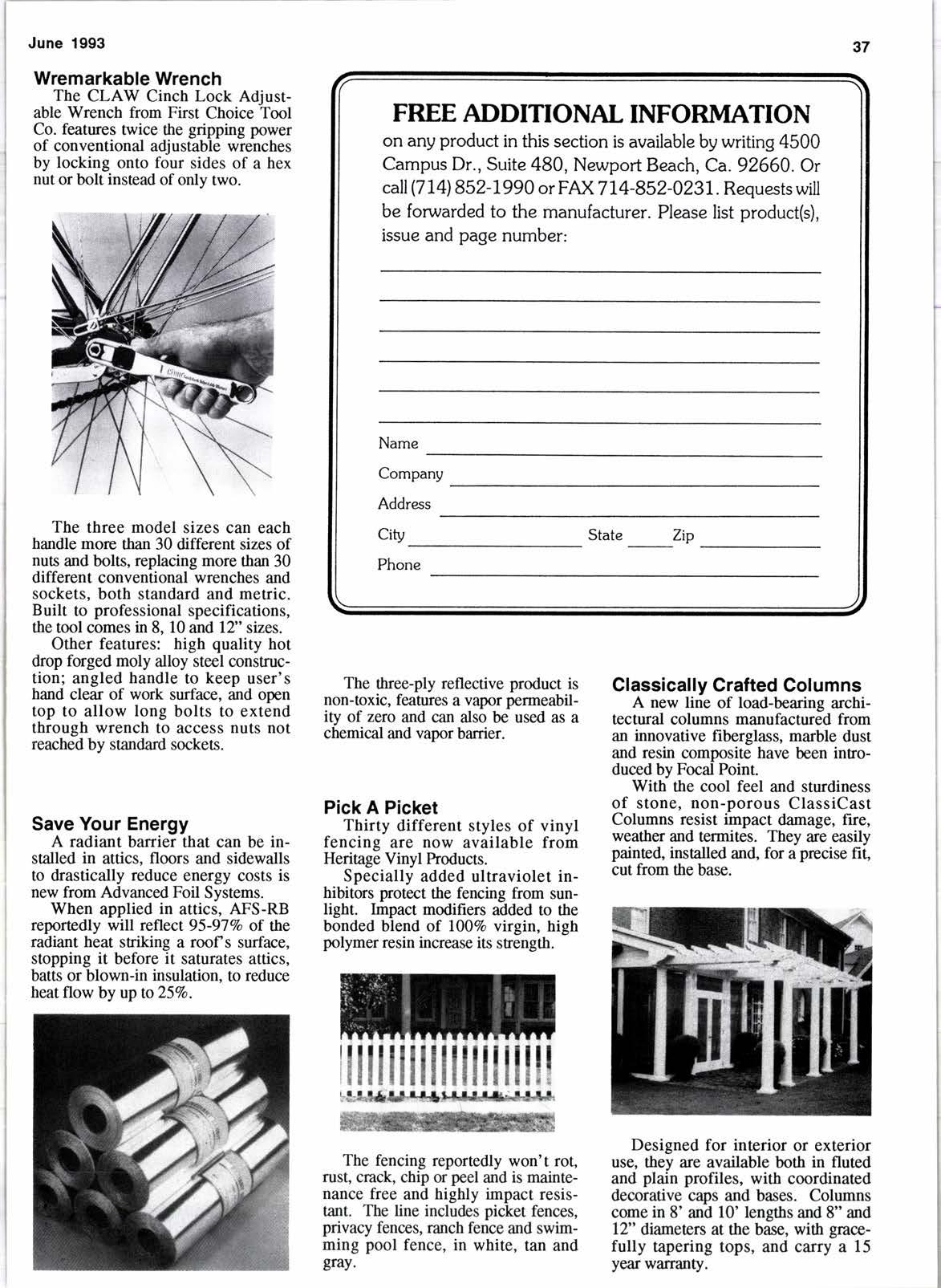
2 minute read
Washington tami ly store still thriving after 70 years
EIUILDERS Material has been lJserving the people of Longview, Wa., for 70 years, 23 of them in the same location, with Mack family ownership snce 1924 and Jim Mack ils owner since 1968.
Personal attention drives the business which Mack operates with the sales counter as his office. Everyone is greeted by name and assisted in finding what they need. "It takes perseverance - showing up at 6:30 a.m. and staying until 6 every evening," explains Mack.
He adds tbat in an era when large chain stores grab ever larger shares of the lumber and hardware markets. his independent store has survived because cooperative buying keeps the prices competitive and the clerks know the difference between a carriage bolt and a lag bolt. We're competitive because we have knowledgeable people, Mack adds.
Builders Material was founded in Kelso, Wa., on March 17,l923,by B. F. Monis. Wilson-Mack Lumber Co., owned by Edgar Wilson and J. B. Mack, opened a branch of its Kansasbased business in Longview about the same time. In1924 Mack and Wilson bougbt the Kelso store and combined tle businesses on the present site as Builders Material.
Mack moved to the area in L937 from Kansas and began working at his grandfather's store when he was 12 making pickets for fences. After graduating from Kelso High School and serving with the Army in Korea, he returned to Longview and bought the family business in 1968. "I hadn't planned to come bach but here I am, fat, dumb and happy," he comments with a laugh.
Things have changed over the years including a new building constructed on the old location in 1970. Early price books show 2x4s selling for $21 a thousand in 1929, compared with around $500 today. Equipment has changed as well. "My dad was so proud when he bought a Hyster forklift," Mack recalls. "Now we couldn't do without it."
Adding a computer system in the eady 1980s brougbt more change. "In this business, the market changes every day and you have to keep prices current," Mack says. "People who don't are losing money.
The business averages between $3.5 million and $4 million a yetr, but times have not always been good. The store suffered in the early 1980s when several local contractors failed. In one year alone, bankruptcies cost the business $10,000 in unpaid bills. "It's kind of tough on us because we're definitely a small business," Mack comments. "When people don't honor their commitments, then we have txouble."
Government regulations and paperwork required of small businesses frustrate Mack. "There are so many pitfalls," he says. "You have to be careful and do your homework."
Because his children aren't interested in taking over the business, he will probably continue "until he drops" to keep from paying high taxes that would result from selling the store. "In the climate that we have today, you have to have a certain attitude, a certain toughness," he emphasizes. "If you don't want to do it, I don't think you should."
Despite early rising, long hours and frustrating paperwork, Mack doesn't plan to quit. "When times are good, you just don't throw confetti, say hurray and go to Acapulco. You have to try to live modestly and keep on an even keel."
Story at a Glance
Small town independent fights the chains with handson management, product knowledge and co-op buying ... frustrations of government regulations, paperwork and unpaid bills.










